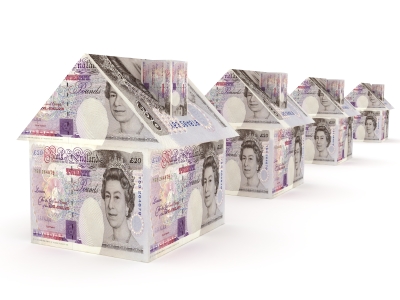| Day | Opening Hours |
|---|---|
| Monday | 8:30am - 6pm |
| Tuesday | 8:30am - 6pm |
| Wednesday | 8:30am - 6pm |
| Thursday | 8:30am - 6pm |
| Friday | 8:30am - 6pm |
| Saturday | 9:00am - 3pm |
The value of property owned by landlords in the UK is set to break the £1 trillion pound barrier next year according the Kent Reliance’s inaugural Buy to let Britain report.

The value of property owned by landlords in the UK is set to break the £1 trillion pound barrier next year according the Kent Reliance’s inaugural Buy to let Britain report.
The report shows the total value of property in the private rented sector has now reached £930.7bn, climbing by £109.5bn in the past year alone - a rise of 13.3%.
From its recent trough in 2009, the sector has gained £302.5bn. In fact, the financial crisis had little impact on the sector. Even since the 2007 peak of the property boom, it has risen by more than quarter of a trillion pounds.
The longer-term growth is even more impressive, with the value of landlords' assets now more three and a half times its level at the start of 2001 (£262.1bn).
Resurgent property prices have been a key driver in the increasing value of the PRS but long-term growth has been underpinned by very strong demand from tenants wanting rented homes.
While there are signs that the rapid house price growth may be slowing, Kent Reliance's analysis of current market trends suggests the PRS will break through the £1 trillion barrier in the second quarter of 2015.
London currently accounts for 41% of the sector's value (£377.3bn) while the South East is the next biggest component with its value of £137.0bn (15%).
The South East alone has a greater value than that of the four smallest in monetary terms (North East, Wales, Yorkshire & the Humber and the West Midlands).
The disproportionate size of the PRS by tenure inside London's population, where over a quarter live in privately rented homes compared to 18% in Great Britain overall, is a major factor in the pace of growth in the overall sector's value. Rapid London house price growth has much a bigger effect on the private rented sector than it does in the wider housing market.
The amount of rent tenants are paying each month across the UK has increased with the PRS. Landlords earned £44.8bn in the twelve months to June - this is up by £2.3bn (5.5%) compared to a year ago.
However, the increase in rents themselves (rental inflation per property) is slowing. While total rent paid across the PRS has risen 4.4% in the last year, the average property's rent has only risen by 1.1%. This compares with annual rental inflation of 2.9% in Q2 2013. The average rent in Britain stands at £813 per month, up from £804 a year ago.
Andy Golding, chief executive of OneSavings Bank, which trades under the Kent Reliance and InterBay brands in Buy-to-Let, commented: "Buy to Let property is going from strength to strength as an asset class in its own right.
"Landlords have benefited from the recovery in house prices since 2009, which has pushed their wealth to within touching distance of £1 trillion. But as the sector's value marches upwards, the main impetus has come from the growth in the number of households as demand from tenants continues to climb.
"Private renting isn't a flash in the pan, and 80% of new households since 2001 have been accounted for in rental properties.
"In many ways, Britain is becoming a more normal nation, much more like its continental neighbours as a result."